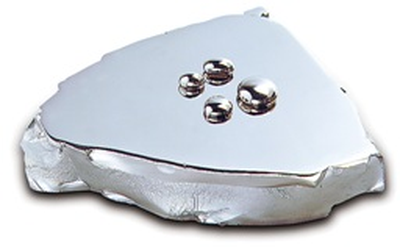 Apple has renewed exclusive rights to use Liquidmetal Technologies' metal alloys in consumer electronics items, according to a filing with the SEC.
Apple has renewed exclusive rights to use Liquidmetal Technologies' metal alloys in consumer electronics items, according to a filing with the SEC.
The rights were originally purchased back in 2010, to run through February 2014. The new renewal extends the agreement through February of 2015.
On May 19, 2014, Liquidmetal Technologies, Inc. (the “Company”) and Apple Inc. (“Apple”) entered into an second amendment (the “Second Amendment”) to the Master Transaction Agreement that was originally entered into on August 5, 2010 (the “MTA”) and amended on June 15, 2012 (the “First Amendment”). Under the MTA and the First Amendment, the Company was obligated to contribute to Crucible Intellectual Property, LLC, a special purpose subsidiary of the Company, all intellectual property acquired or developed by the Company from August 5, 2010 through February 5, 2014, and all intellectual property held by Crucible Intellectual Property, LLC was exclusively licensed on a perpetual basis to Apple for the field of use of consumer electronic products under the MTA. Under the Second Amendment, the parties agreed to amend the MTA and the First Amendment to extend the February 5, 2014 date to February 5, 2015.
According to a report from earlier this year, Apple is interested in using Liquidmetal's alloys for home buttons, touch sensors and tamper-resistant screws. The alloys possess a number of unique properties including high strength and corrosion resistance while remaining relatively light and able to cast into a variety of forms.






















